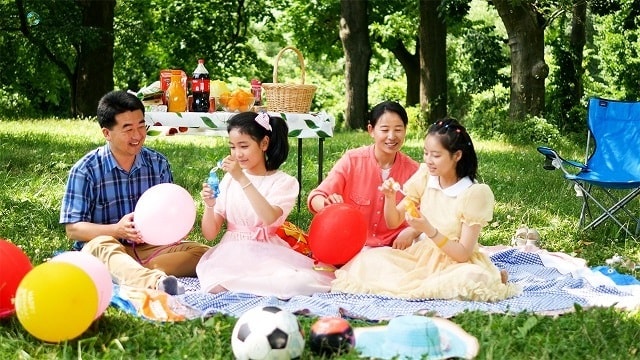Bian Hua, Yunnan Province
I started following Almighty God when I was 19 years old: As soon as I left school I joined The Church of Almighty God. I had had very little to do with society, and didn’t really know much about what was going on in it. But I did know that I totally represented one of the special characteristics of Chinese society in that I was a selfish only child.

As a result of my parents having to be subject to the Chinese government’s policy of population control, I was in the first batch of “achievements.” After I was born, everybody in my family started treating me with the care and protection deserving of a rare and precious treasure. My mother told me that in my first year I often had a fever and so my father would hold me in his arms and walk around the bedroom all night to stop me from crying. As my parents both had jobs, and so didn’t have the time to look after me, I was sent to kindergarten before the age of 2. My grandma was afraid that I wouldn’t be able to adjust, and so would often stand outside the kindergarten to see if I was crying or not, which made her often late for work. Once when the weather was very cold my mother stayed up all night knitting a warm sweater for me to wear the next day. In school my grades were always good, and having me as a high achiever was gratifying to my parents’ and grandparents’ vanity of longing to see their children succeed, giving them more reason to treat me like a precious pearl. During my school years, the first thing my father would do when he got home from work was to massage my hands to prevent them from getting tired from doing homework. In the summer when I got home after school, my mother would always get a bowl of peeled, frozen, sugary tomatoes from the fridge for me to eat. I remember one time when my parents found a teacher to teach me the pipa, a kind of Chinese lute. But after practicing some finger movements for a couple of days I got tired of it and told my parents that I wasn’t going to learn it, so my parents reluctantly conformed with my wishes. Every weekend I would go to my grandma’s house and she would always put some money in my pocket. If I told her I didn’t want it, she’d say: “Free lunch, why not? Take it. I’ll give you money as long as you come every week.” She always used to stuff my mouth with tasty treats too, and I’d eat so much that I’d get stomach ache. Thinking back on this now, I can see that Chinese parents don’t have truths and that’s why they don’t know how to educate their kids. So what did I turn into from being smothered with all this affection? I turned into a selfish, temperamental, fragile kid who had no willpower or purpose in life. I was like an invalid who sits in bed every day holding out their hand to take whatever is given and opening their mouth when it’s time to be fed, but never caring a jot for anyone else. I was totally unforgiving toward my parents, and I never accepted anyone else’s opinions. If my parents said something critical about me I’d retort with 10 times as much. My father even gave me the nickname “twisted donut” because I’d become so twisted and troublesome. I particularly hated doing anything that resembled hard work, so if my folks weren’t home when I was off school then I wouldn’t eat, because I was too lazy to heat up the food that they had cooked for me. Later, they would give me some money to go out and buy something to eat, but I couldn’t be bothered going for a little walk so I went hungry instead. So my parents told me a story about an idiotic child. The child’s mother cooked a flatbread for him and hung it round his neck because she had to go out for a long time. But when she got home she discovered that her son had died of hunger because he’d only eaten the bread in front of his face and hadn’t known to eat the rest of it hanging around his neck. My mother said I was an even bigger idiot than that boy. Apart from studying, I had no other purpose in life. By the time I got to high school I was even more resentful: School was a bit far from home so I had to cycle an hour every morning and there was a lot more pressure to pass exams. One morning when it was raining heavily, I fell off my bike on the way to school. I ended up lying in a big puddle with my lunch scattered all over the ground. I wanted to cry, and really thought that high school was a living hell. I felt it was all too hard, too tiring, and I really wanted to drop out of school. At a later date, my mother read in the newspaper about a first-year student at Qinghua University who had hung himself in the college dormitory. This student had become tired and depressed with having to do all the other tasks in addition to studying—doing his own laundry, getting meals in the cafeteria, tidying up his room—that students have to do. Apparently, he was particularly upset by having to peel his hard-boiled eggs at breakfast (at home his parents used to peel them for him), and, feeling that he was under too much pressure, took his own life. People started calling this kind of student “high grades but low basic abilities,” and my mother was scared that I’d become one of these useless creatures, so she started nagging me about becoming more independent. But I was already 16 or 17 years old and my character was pretty much fully formed, and so my parents’ exhortations had no effect on me—whatever they said just went in one ear and out the other. At school, a popular saying among my schoolmates at that time was: “Walk your own way and let others say what they want!” But my schoolmates were all just like me: China’s spoiled only children who lacked learning and talent and had no direction in life.



